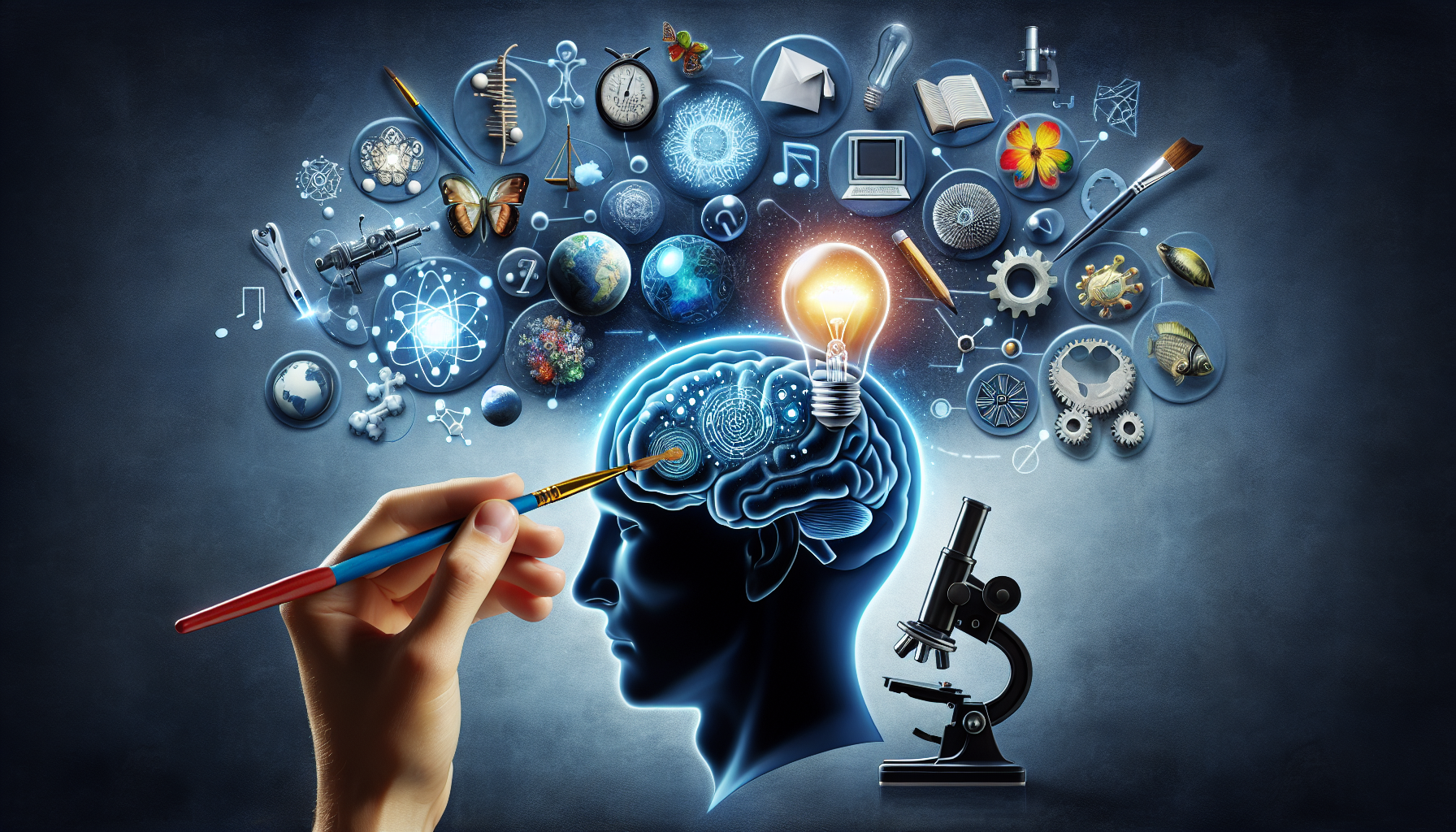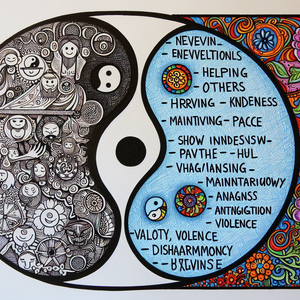The Intersection of Technology and Anthropology

One of the most significant developments in contemporary anthropology is the rise of digital ethnography. This innovative subfield focuses on studying online communities and digital interactions, allowing anthropologists to utilize advanced digital tools to observe, analyze, and interpret behaviors within virtual environments. The ability to study social media platforms and other digital spaces has broadened the scope of anthropological research, providing valuable insights for businesses, policymakers, and social organizations seeking to connect with diverse communities.
Supporting Example
A notable illustration of digital ethnography's impact is the research conducted by anthropologists during the COVID-19 pandemic. As social interactions transitioned online, researchers employed digital ethnography to examine how communities adapted to virtual communication and maintained social ties. Their findings informed strategies for community engagement and mental health support during a crisis, highlighting the importance of understanding human behavior in a digital context.
Cultural Data Science: Bridging the Gap
With the growth of big data, the role of cultural data scientists has become increasingly essential. These professionals blend anthropological methods with data analysis techniques to extract meaningful insights from vast quantities of information. By analyzing trends in consumer behavior, social patterns, and cultural shifts, cultural data scientists provide businesses and organizations with data-driven strategies that resonate with target audiences.
Supporting Example
Prominent tech companies like Facebook and Google employ cultural data scientists to gain insights into user behavior and enhance user experience. By applying anthropological perspectives to data analysis, these organizations can create products and services that align more closely with cultural norms and values. This synergy ultimately leads to greater user satisfaction and engagement, demonstrating the value of integrating anthropological insights into technology-driven environments.
Ethical Considerations in Tech-Infused Anthropology
The integration of technology into anthropology brings forth a myriad of ethical considerations. Anthropologists must navigate complex issues related to privacy, consent, and representation, particularly when working with data collected from individuals in digital spaces. Upholding ethical standards in research practices is essential for maintaining trust and integrity within the field.
Supporting Example
The ongoing debate surrounding data privacy on social media platforms underscores the necessity for ethical guidelines in digital research. Anthropologists are advocating for transparent data practices and policies that protect individuals' rights while still allowing for meaningful research. This dialogue is crucial as the field adapts to technological advancements, ensuring that anthropologists remain accountable in their work.
The Future of Anthropic Careers in Technology
As the demand for professionals who can navigate both cultural insights and technological tools continues to grow, the future of anthropic careers looks promising. Educational institutions are increasingly offering interdisciplinary programs that combine anthropology with data science, technology, and digital media. This shift is preparing students to thrive in a job market that values diverse skill sets.
Supporting Example
Universities such as Stanford and the University of Southern California have introduced programs that integrate anthropology, technology, and digital media studies. These initiatives equip students with the knowledge and skills necessary to excel in emerging roles that bridge the gap between human behavior and technological advancements, paving the way for a new generation of anthropic professionals.
The intersection of technology and anthropology is a fertile ground for innovation and discovery. As anthropic careers evolve, professionals are uncovering new ways to understand human behavior within the digital landscape. Roles like digital ethnographers and cultural data scientists exemplify how traditional anthropological methods can be enhanced by technological tools, leading to richer insights and more effective solutions to contemporary challenges. Moving forward, it is essential for anthropologists to engage with ethical considerations and adapt their practices to the ever-changing technological environment, ensuring that their work remains relevant and impactful in this digital age. Through this fusion of disciplines, anthropology can continue to shed light on the complexities of human behavior and culture, even as they rapidly evolve in response to technological change.
Digital Ethnographer
Social media companies (e.g., Facebook, Twitter), marketing agencies, and academic institutions
Core Responsibilities
Conduct in-depth studies of online communities and social media platforms to understand user behavior and cultural dynamics.
Utilize digital tools and software for data collection and analysis, including qualitative methods such as interviews and surveys.
Create comprehensive reports and presentations to communicate findings to stakeholders, helping to shape product development and marketing strategies.
Required Skills
Proficiency in qualitative research methods and familiarity with digital analytics tools (e.g., NVivo, Google Analytics).
Strong communication and storytelling skills to convey complex findings in an accessible manner.
Experience with online community engagement and a deep understanding of digital culture.
Cultural Data Scientist
Tech giants (e.g., Google, Amazon), consulting firms, and consumer goods companies
Core Responsibilities
Analyze large datasets to identify trends in consumer behavior and cultural shifts, utilizing both statistical and anthropological methods.
Collaborate with cross-functional teams to develop data-driven strategies that align with cultural insights and user needs.
Present actionable insights and recommendations to executive teams and stakeholders to inform business decisions and product development.
Required Skills
Expertise in data analysis and programming languages (e.g., Python, R) alongside familiarity with anthropological research methods.
Strong analytical skills with the ability to interpret complex data and translate findings into actionable insights.
Knowledge of machine learning and data visualization tools (e.g., Tableau, Power BI) is a plus.
User Experience (UX) Researcher
Design agencies, software companies, and e-commerce platforms
Core Responsibilities
Conduct qualitative and quantitative research to understand user needs, preferences, and pain points in digital products.
Design and execute user testing sessions, interviews, and surveys to gather insights on user experience.
Collaborate closely with designers and product teams to ensure that user feedback informs product design and features.
Required Skills
Proficiency in UX research methodologies and tools (e.g., UserTesting, Optimal Workshop).
Strong analytical and problem-solving skills with the ability to synthesize user feedback into actionable design improvements.
Excellent communication skills for presenting research findings to diverse audiences.
Digital Cultural Strategist
Advertising agencies, brands with a strong digital presence, and cultural institutions
Core Responsibilities
Develop and implement digital marketing strategies that resonate with target audiences by leveraging cultural insights and trends.
Monitor and analyze social media and digital campaign performance to adjust strategies for maximum engagement.
Work with creative teams to ensure that branding and messaging align with cultural contexts and audience expectations.
Required Skills
Strong understanding of cultural trends and their impact on consumer behavior.
Experience with digital marketing tools and analytics platforms (e.g., SEMrush, Hootsuite).
Creative thinking and ability to translate cultural insights into compelling marketing campaigns.
Ethical Technology Consultant
Nonprofit organizations, tech companies, and academic institutions involved in research ethics
Core Responsibilities
Advise organizations on best practices for ethical data collection and usage, particularly in digital anthropology and research.
Develop frameworks for ethical decision-making related to privacy, consent, and representation in digital research environments.
Conduct training sessions and workshops to raise awareness about ethical considerations in technology and anthropology.
Required Skills
Strong knowledge of data privacy laws and ethical standards in research.
Excellent communication skills for engaging with diverse stakeholders, including policymakers, researchers, and the general public.
Experience in anthropology, sociology, or a related field is preferred, with a focus on ethical implications.


